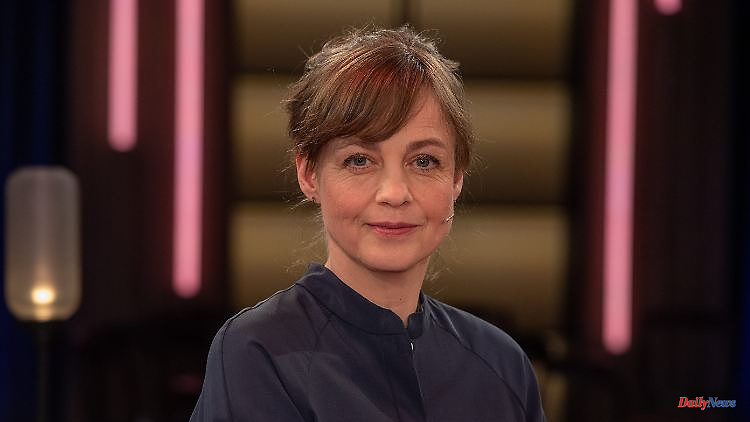Lovesickness, insomnia, goodbyes: They may be banal everyday complaints that everyone knows, but Mariana Leky makes something special out of grief of all kinds. In her new book, the ugly sides of life are observed with humor and impressive sensitivity - and transformed into something incredibly beautiful.
There are authors who can be blindly recommended. One thinks immediately of the books of these writers when one is asked about their favorite book. One is envious of those who are allowed to read the works for the first time. When someone asks for a gift idea, you always suggest that person's books. Mariana Leky is one of those authors - and her new book, Kummer aller Art, is no exception.
In the 40 short stories, which originally appeared as columns in "Psychologie Heute", Leky describes the suffering of everyday life in a clever, sensitive and humorous way. Anyone who has never had to clean up their psychological practice at the end of their career will still look back nostalgically on this phase of life with Uncle Ulrich. Anyone who has never suffered from a sleep disorder will feel sorry for Mrs. Wiese. And those who have never been left by text message will feel Lisa's heartbreak for themselves.
Leky has never experienced any of this either - she didn't even derive little Lisa's naive lovesickness from her own experience. And that, although Leky can still remember her first lovesickness. She was twelve years old, happily in love with a 15-year-old boyfriend. "It was a completely innocent story," she says in an interview with ntv.de. Their love was shown by the fact that they didn't throw themselves out on "Mensch ärgere dich" or always whispered the rivers to each other on "Stadt, Land, Fluss". That was proof of their love. But then he left her for an older one. "And that was really terrible," Leky can still remember today.
These stories are so real and real. And this despite the fact that Leky freely invents them all. In truth, Leky usually walks her dog and thinks about a topic. For example: job. Then she thinks of a suitable character to tell the story. Uncle Ulrich, for example. "I think to myself: 'Well, I'll put that on his head,'" says Leky. And that's how the little stories that make up "All Kinds of Grief" come about.
It is not the first time that the 49-year-old author has dealt with suffering, pain and grief. Her bestseller "What you can see from here" is about a small village that experiences a number of twists of fate. The story, which has since been filmed and was released in German cinemas at the end of 2022, is a gripping love story, although the characters from the Westerwald experience so much pain and suffering. But that's exactly what makes love in the story so true to life, so tangible, so touching: "Love and loss always come in pairs. The greater the love, the greater the loss," says Leky in an interview with ntv.de.
This is exactly why Leky's new book is a masterpiece. Because the little stories don't look away from the dark side of life. In a few words, they describe psychological phenomena that could also be analyzed over weeks, months or even years.
Mr. Pohl's anxiety disorder does nothing but tie him to the house. Ms. Wiese's decision paralysis is a lumbago: she doesn't move because "every movement could be the wrong one". A loud silence is "a silence that decides for itself when it is over, a silence that cannot be said".
But Leky also manages to put the lighter side of life on paper in just under 170 pages. One often feels caught in a charming way while reading. Like the self-perception of the first-person narrator: "The next day, I took one of those unspeakable psychotests in a magazine with fellow students in the canteen. One question was: 'How important is it to you what other people think of you?' - 'Very important', I wanted to say, but instead I lied: 'Not at all important', because I cared about what my fellow students thought of me."
Stories so powerful are very difficult to read aloud. The deep and complicated sentiments that Leky so easily puts on paper need to be read both forcefully and gently to do them justice. But Katharina Quast manages to give the audio book this depth. With her voice, the actress fills the space with the words from "All Kinds of Grief", but is careful with the sad passages and dynamic with the funny and light passages.
The stories are detached from each other, no more than three pages long, and yet they provide continuity and depth. And although you don't find out how things are going to continue, you wish Uncle Ulrich a good transition into retirement, you hope that Mrs. Wiese can finally sleep and that little Lisa can keep up a bit of naivety even after her first lovesickness. Or, as Leky writes: "I wish Lisa could hold on to the sentence 'It will pass' like a water skier on his tow rope."












